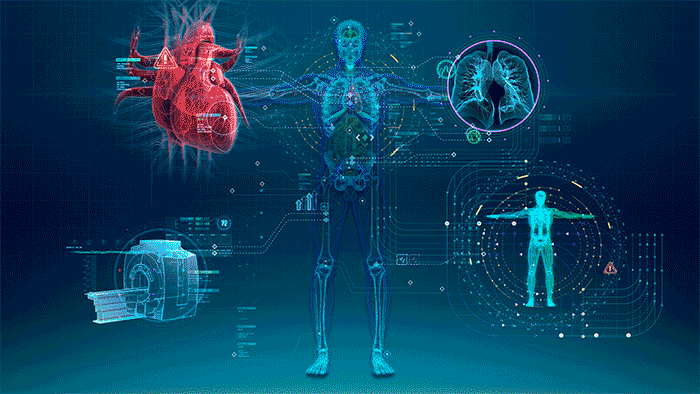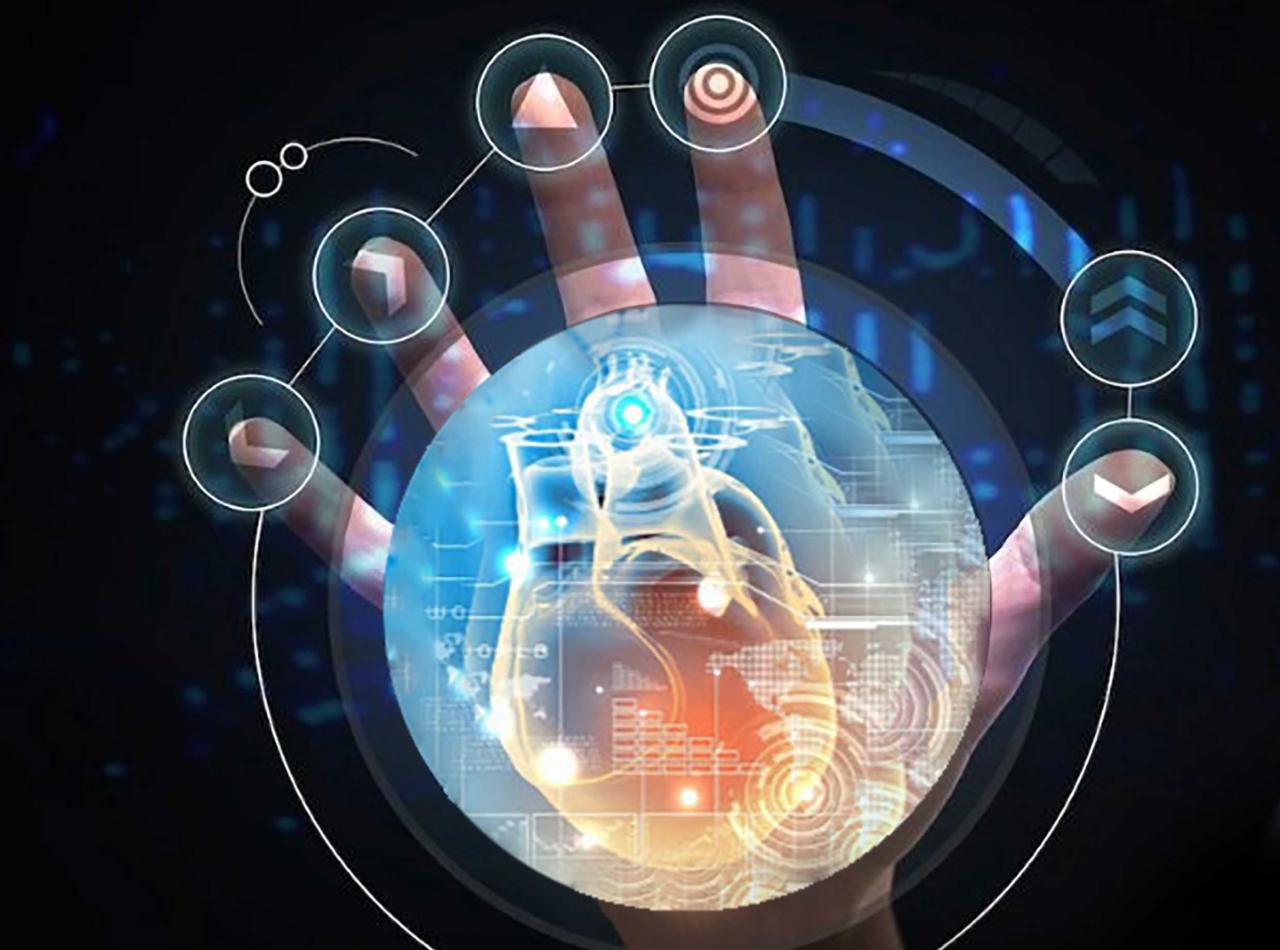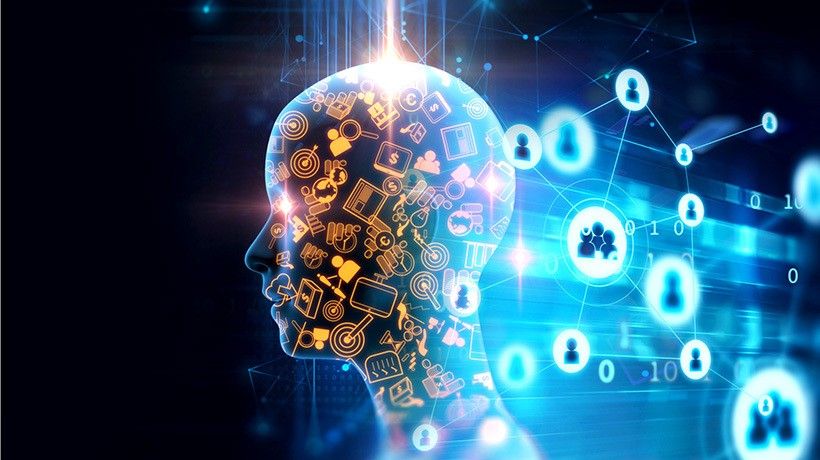
AI Reshapes Personalized Health Future
In the dynamic landscape of modern healthcare, Artificial Intelligence (AI) stands as a monumental force, rapidly transforming the way we approach well-being. No longer confined to the realm of science fiction, AI is now a practical, powerful tool actively reshaping the very essence of personalized health. This isn’t just about faster diagnoses; it’s a profound shift towards tailor-made health strategies, precision interventions, and predictive insights that empower individuals and clinicians alike. For anyone seeking to navigate the complexities of their unique health journey, understanding AI’s role is becoming increasingly vital. For content creators, this burgeoning field represents a goldmine for SEO and high Google AdSense revenue, as the public eagerly seeks knowledge on how technology will empower their health. This comprehensive article will delve deep into the multifaceted ways AI is revolutionizing personalized health, exploring its applications, the underlying technologies, the ethical considerations, and the boundless potential it holds for a healthier, more customized future.
The Dawn of Personalized Health: Why AI is Key
Historically, healthcare has often operated on a “one-size-fits-all” model, where treatments and recommendations were largely based on population averages. While effective for many, this approach frequently overlooks the unique genetic makeup, lifestyle, environment, and individual physiological responses that differentiate one person from another. This is where personalized health steps in—a paradigm shift that aims to deliver the right intervention to the right person at the right time.
AI is the quintessential enabler of this shift because of its unparalleled ability to:
- Process Big Data: Healthcare generates an enormous volume of data, from genomic sequences and electronic health records (EHRs) to wearable device metrics and medical images. Humans simply can’t process this scale and complexity. AI algorithms can.
- Identify Complex Patterns: AI can detect subtle, non-obvious patterns and correlations within vast datasets that might elude human analysis, leading to novel insights into disease mechanisms or treatment efficacy.
- Learn and Adapt: Unlike static software, AI systems, particularly those leveraging machine learning (ML), can learn from new data, continuously refining their predictions and recommendations over time.
- Automate and Scale: AI can automate repetitive analytical tasks, freeing up clinicians for more complex patient interactions and allowing personalized insights to be delivered to a much wider population.
- Predict and Prescribe: Beyond diagnosis, AI can predict disease risk, forecast treatment responses, and even suggest optimal drug dosages or lifestyle modifications tailored to an individual.
The convergence of AI with advancements in genomics, proteomics, metabolomics, and digital health monitoring is unlocking unprecedented opportunities to move from reactive, general medicine to proactive, precision, and truly personalized health.
AI’s Transformative Applications in Personalized Health
AI’s influence in personalized health spans the entire spectrum of patient care, from prevention and diagnosis to treatment and long-term management. Its applications are diverse, powerful, and rapidly expanding.
A. Precision Diagnostics and Early Detection
AI’s ability to analyze vast medical datasets is fundamentally changing how diseases are identified, often at earlier and more treatable stages.
- Medical Imaging Analysis: AI algorithms, particularly deep learning networks, are excelling at analyzing X-rays, MRIs, CT scans, and pathology slides. They can detect minute anomalies (e.g., early-stage tumors, subtle retinal changes indicative of disease, or microscopic patterns in tissue biopsies) that might be missed by the human eye, improving diagnostic accuracy and speed.
- Genomic and Proteomic Analysis: AI can sift through complex genomic sequences to identify genetic predispositions to diseases (e.g., specific cancer risks, autoimmune conditions) or predict individual drug responses (pharmacogenomics). It can also analyze proteomic data to identify unique biomarkers for disease. This allows for proactive screening and highly personalized preventative strategies.
- Pathology and Histology: AI-powered microscopes can analyze tissue samples with incredible speed and precision, identifying cancerous cells or disease markers, augmenting the work of human pathologists and enabling quicker, more consistent diagnoses.
- Early Disease Prediction from EHRs: AI can analyze a patient’s electronic health records, combining symptoms, lab results, family history, and even social determinants of health, to predict the risk of developing conditions like sepsis, heart failure, or diabetes long before overt symptoms appear, enabling timely intervention.
B. Tailored Treatment and Drug Discovery
Moving beyond “one-size-fits-all,” AI is making treatments more effective and drug development more efficient.
- Personalized Treatment Plans: Based on a patient’s unique genetic profile, disease characteristics, lifestyle, and past treatment responses, AI can recommend the most effective therapy, optimal drug dosage, or the most suitable combination of treatments, minimizing trial-and-error. For oncology, this means matching patients to specific targeted therapies or immunotherapies.
- Drug Discovery and Development: AI significantly accelerates the notoriously lengthy and expensive drug discovery process. It can:
- Identify Novel Drug Candidates: Screen vast molecular libraries to predict compounds that will bind effectively to disease targets.
- Predict Drug Efficacy and Toxicity: Simulate how drugs will behave in the human body, reducing the need for costly and time-consuming physical experiments.
- Optimize Clinical Trial Design: Identify ideal patient cohorts for trials and predict potential roadblocks, making trials faster and more successful.
- Adaptive Clinical Trials: AI can dynamically adjust trial parameters based on real-time patient data, allowing for more efficient and ethical testing of new treatments, ensuring that promising therapies reach patients faster.
- Remote Monitoring and Intervention: AI-powered systems can analyze data from wearables and remote sensors to monitor a patient’s condition (e.g., blood glucose levels, heart rate, activity patterns) in real-time. If deviations are detected, the AI can alert healthcare providers or even provide automated, personalized advice to the patient, facilitating proactive management of chronic conditions.
C. Preventative Health and Lifestyle Management
AI’s predictive capabilities are transforming healthcare from a reactive system to a proactive one, focusing on preventing illness before it starts.
- Risk Assessment and Stratification: By analyzing a combination of genetic data, lifestyle factors (diet, exercise), environmental exposures, and health records, AI can provide highly granular risk assessments for various diseases. This allows for targeted preventative interventions.
- Personalized Wellness Coaching: AI-powered apps and digital platforms can act as personalized health coaches. They can analyze dietary intake, exercise patterns, sleep quality, and stress levels from wearable devices, then provide customized recommendations for improving overall well-being, suggesting specific foods, workout routines, or mindfulness exercises.
- Early Intervention for Mental Health: AI can analyze speech patterns, social media activity, and sleep data (with consent) to detect early warning signs of mental health issues like depression or anxiety, prompting timely intervention and access to support.
- Infectious Disease Surveillance and Outbreak Prediction: AI can analyze vast amounts of data from various sources (e.g., travel patterns, social media trends, environmental data, hospital admissions) to predict and track infectious disease outbreaks, enabling faster public health responses and personalized warnings.
D. Optimizing Healthcare Operations and Access
Beyond direct patient care, AI is also streamlining the healthcare ecosystem, improving efficiency and access.
- Administrative Automation: AI can automate routine administrative tasks like scheduling appointments, managing billing, and processing insurance claims, freeing up staff and reducing operational costs.
- Resource Allocation: AI algorithms can optimize hospital bed allocation, surgical suite scheduling, and staffing levels, improving efficiency and reducing patient wait times.
- Chatbots and Virtual Assistants: AI-powered chatbots can answer common patient queries, provide preliminary symptom assessment, offer medication reminders, and guide patients to appropriate care pathways, improving access to information and reducing the burden on human staff.
- Medical Literature Review: AI can rapidly sift through millions of medical research papers and clinical trial results, helping researchers and clinicians stay updated on the latest advancements and evidence-based practices, which in turn feeds into more personalized care.
The Technological Backbone of AI in Personalized Health

The incredible applications of AI in healthcare are powered by sophisticated underlying technologies and methodologies.
A. Machine Learning (ML) and Deep Learning (DL)
These are the primary engines of AI’s analytical power in health.
- Supervised Learning: Algorithms are trained on labeled datasets (e.g., images labeled as “cancer” or “non-cancer”) to predict outcomes for new, unlabeled data. This is crucial for diagnostic tools.
- Unsupervised Learning: Algorithms identify hidden patterns or groupings in unlabeled data (e.g., discovering new patient subgroups with similar disease characteristics that respond similarly to a drug).
- Reinforcement Learning: AI learns by trial and error, optimizing actions to achieve a goal (e.g., developing optimal treatment protocols or drug dosing strategies by learning from patient outcomes).
- Deep Learning (Neural Networks): A subset of ML, deep learning uses multi-layered neural networks inspired by the human brain. DL excels at pattern recognition in complex data like medical images, genomics, and natural language, making it powerful for diagnostics and drug discovery.
B. Natural Language Processing (NLP)
NLP enables AI to understand, interpret, and generate human language.
- Electronic Health Record (EHR) Analysis: Extracting valuable information from unstructured text in patient notes, discharge summaries, and medical reports, making it searchable and actionable for personalized care.
- Patient-Facing Chatbots: Allowing patients to interact with AI systems using natural language for queries, symptom checking, or appointment booking.
- Medical Literature Synthesis: Summarizing complex research papers and identifying key findings relevant to specific patient cases.
C. Computer Vision
A field of AI that trains computers to “see” and interpret visual information.
- Image-Based Diagnostics: Analyzing X-rays, MRIs, CT scans, retinal scans, and pathology slides for disease detection and progression monitoring.
- Surgical Assistance: Providing real-time visual guidance to surgeons during complex procedures.
- Wearable Device Analysis: Interpreting video or image data from smart devices for posture analysis, wound monitoring, or fall detection.
D. Data Integration and Interoperability
The ability to combine and analyze data from disparate sources (EHRs, wearables, genomic databases, lab results) is fundamental to personalized health AI. This often involves cloud computing and secure data platforms.
Ethical Considerations and Challenges
While AI offers immense promise, its integration into personalized health comes with significant ethical and practical challenges that must be carefully addressed.
A. Data Privacy and Security
Healthcare data is highly sensitive. Ensuring robust cybersecurity measures, anonymization techniques, and strict adherence to regulations like HIPAA (in the US) or GDPR (in Europe) is paramount to protect patient privacy and maintain trust.
B. Algorithmic Bias and Fairness
AI algorithms are trained on data, and if that data reflects existing societal biases (e.g., underrepresentation of certain ethnic groups in clinical trials), the AI’s recommendations can perpetuate or even amplify those biases, leading to health inequities. Ensuring diverse and representative training data is crucial.
C. Transparency and Explainability (XAI)
The “black box” problem: It can be challenging to understand why an AI made a particular diagnosis or recommendation. For critical healthcare decisions, clinicians and patients need to understand the reasoning, leading to a demand for Explainable AI (XAI).
D. Regulatory Frameworks
Developing appropriate regulatory pathways for AI-driven medical devices and software is complex. Regulators need to ensure safety, efficacy, and accountability without stifling innovation.
E. Workforce Integration and Reskilling
AI will augment, not entirely replace, human clinicians. Healthcare professionals need training to effectively use AI tools, interpret their outputs, and understand their limitations. Concerns about job displacement also need to be addressed.
F. Patient Trust and Acceptance
Building patient trust in AI tools requires clear communication, demonstrating benefits, addressing concerns about privacy, and ensuring human oversight in critical decision-making.
G. Cost and Accessibility
Ensuring that advanced AI-powered personalized health solutions are affordable and accessible to all, not just a privileged few, is a major societal challenge. This involves equitable distribution and public health policies.
The Future Landscape: AI-Powered Health Beyond Imagination

The current applications of AI in personalized health are just the tip of the iceberg. The future promises even more revolutionary advancements.
A. Digital Twins and Predictive Health Models
Imagine having a “digital twin”—a virtual replica of your biological self, created from your unique genomic data, real-time physiological data from wearables, lifestyle information, and health history. AI could use this digital twin to simulate various health scenarios, predict disease progression, test different treatment options virtually, and provide highly precise preventative advice before anything manifests physically.
B. Hyper-Personalized Therapeutics
Beyond current drug matching, AI could design novel molecules or even modify existing drugs at the individual patient level to maximize efficacy and minimize side effects based on their unique biological response profile. This could lead to a new era of “on-demand” personalized medicine.
C. Continuous and Proactive Health Monitoring
Wearable sensors will become far more sophisticated, non-invasive, and integrated into everyday life, continuously collecting a vast array of physiological data. AI will analyze this data in real-time, detecting the earliest signs of disease onset or physiological distress, often before the individual even notices symptoms, enabling immediate proactive interventions.
D. AI-Driven Robotic Surgeries and Interventions
AI will enhance robotic surgery with even greater precision, real-time data analysis during procedures, and predictive capabilities to anticipate complications. This will lead to less invasive procedures, faster recovery times, and improved patient outcomes.
E. AI-Accelerated Regenerative Medicine
AI could play a crucial role in stem cell research, tissue engineering, and organ regeneration by optimizing cell culture conditions, predicting differentiation pathways, and designing scaffolds for new tissues, bringing regenerative medicine closer to clinical reality for personalized repair of damaged organs.
F. AI for Global Health Equity
While challenges exist, AI also holds immense potential to democratize healthcare. AI-powered diagnostics can be deployed in remote areas via mobile devices, and virtual care platforms can extend the reach of specialists to underserved populations globally, leading to more equitable access to personalized health insights.
A New Era of Health Empowerment
Artificial Intelligence is not merely augmenting existing healthcare practices; it is fundamentally reshaping the landscape of personalized health, moving us towards an era of unprecedented precision, prediction, and prevention. From optimizing drug discovery and tailoring treatments to enabling hyper-personalized wellness coaching and early disease detection, AI’s capabilities are empowering individuals to take proactive control of their health in ways previously unimaginable. While navigating the complex ethical considerations of data privacy, bias, and accessibility is crucial, the immense potential for AI to create more efficient, equitable, and effective healthcare systems for everyone is undeniable. As this technology continues to evolve, our understanding of human biology will deepen, leading to ever more sophisticated and customized health solutions. Embracing this AI-driven revolution means stepping into a future where health is truly personalized, proactive, and ultimately, more empowering for all, solidifying its place as a cornerstone topic for digital content and high-impact SEO.

